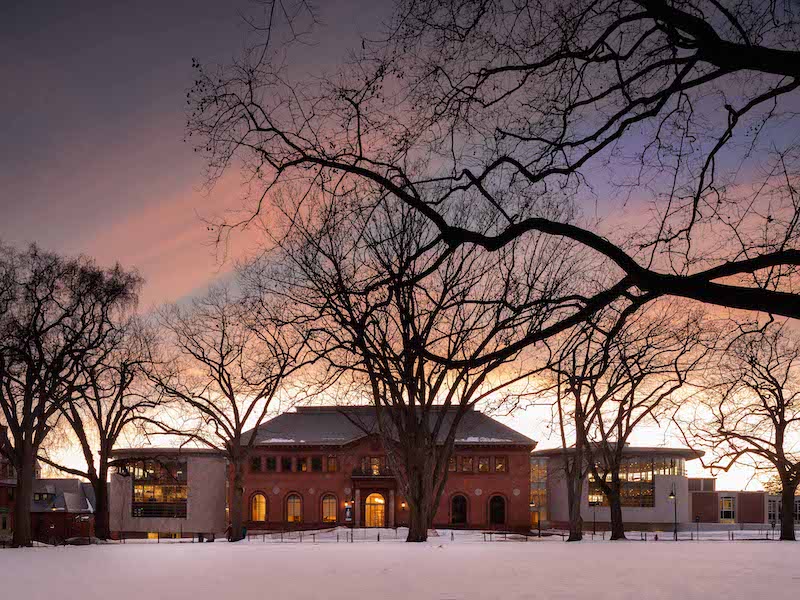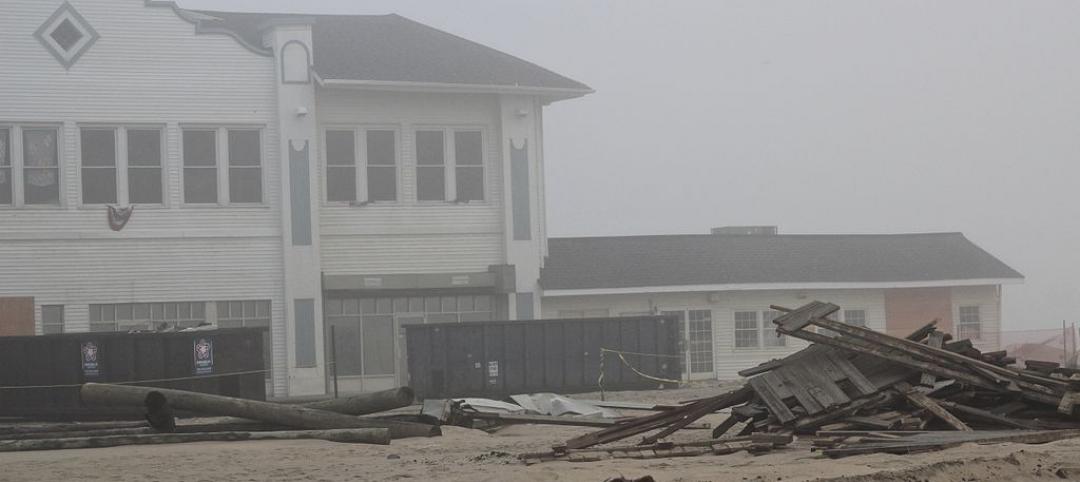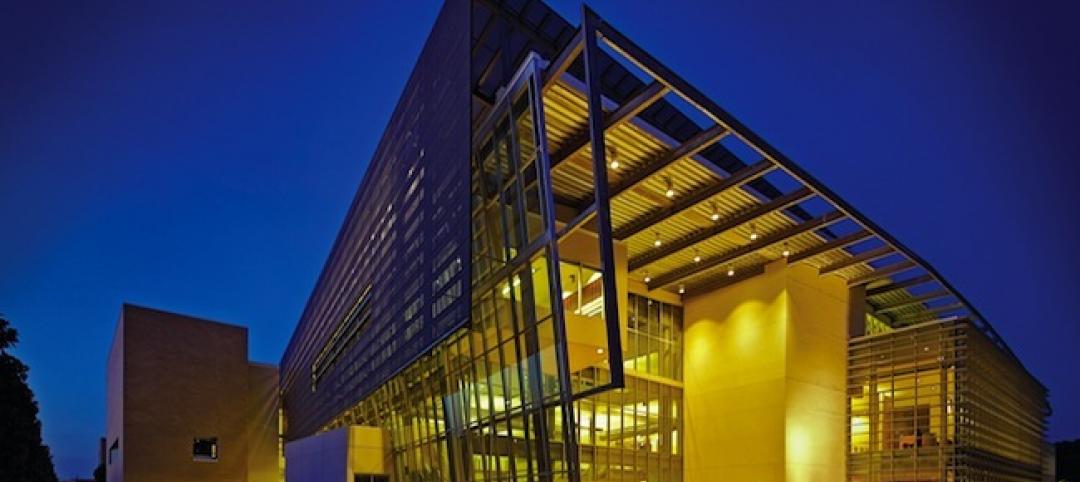On March 29, the Smith College Neilson Library, on the Northampton, Mass., campus of Smith College, reopened to students after a four-year, $120 million renovation and expansion that reimagine the library’s 200,000 sf, in the conception of its architectural designer Maya Lin, as an intellectual commons.
Maya Lin Studios teamed with principal architect Shepley Bulfinch and the construction management firm Shawmut Design & Construction on what was Smith College’s largest capital project in a decade.
Also see: A video tour of the completed library here.
The original Smith College library opened in 1909 and had gone through three rounds of renovation before this current project, which included replacing wings that blocked the view of this Berkshires-nestled campus (designed by Frederick Law Olmstead) with two new wings that have a curved, light-filled design made from masonry, wood, and glass.
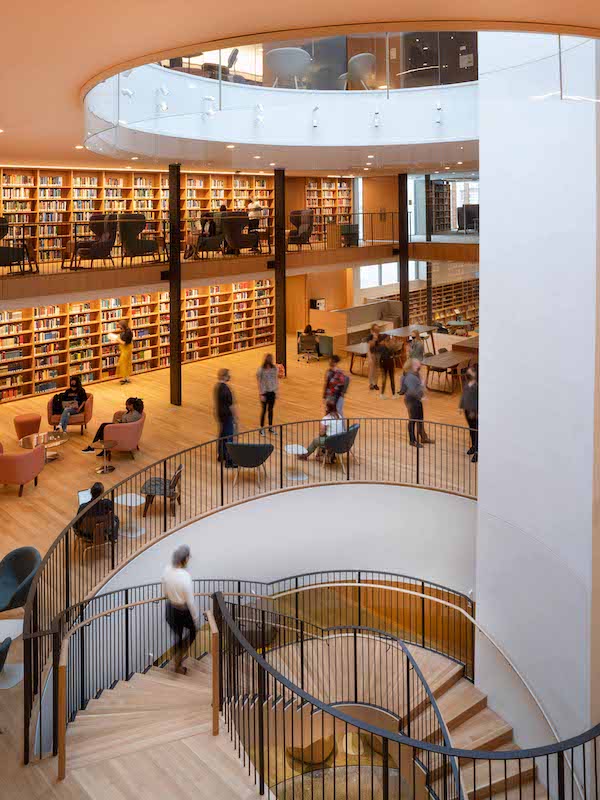
An oculus provides natural light throughout the library's four floors.
The original building now forms the library’s core whose spacious atrium is illuminated by a four-story oculus. The central floor offers a massive reading area, and the building features flexible and collaborative workspaces, classrooms, contemplative study areas, a sunken courtyard, and event spaces that include an accessible outdoor amphitheater. On the fourth floor, a Skyline Terrace provides sweeping views and an outdoor patio.
Bringing Smith College Neilson Library Into the 21st Century
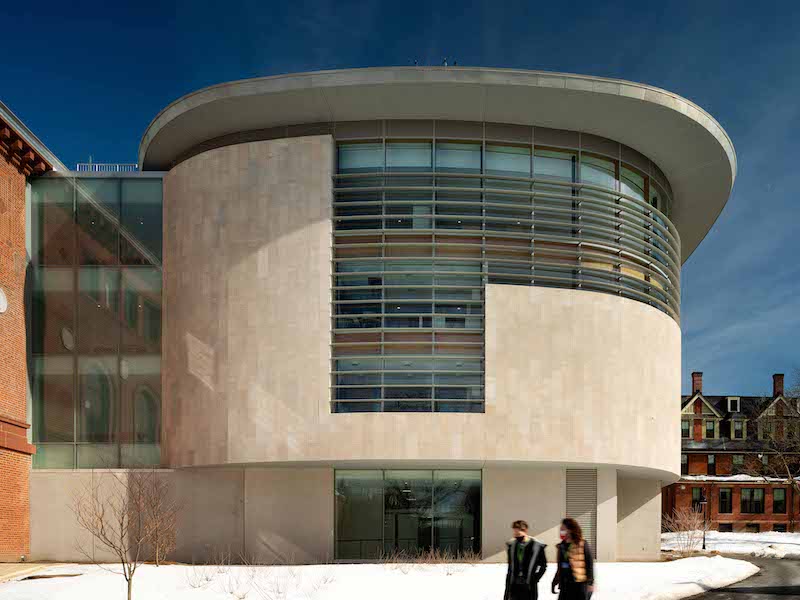
One of two wings, made of masonry, wood, and glass, that were added to the library's original building.
There’s a Digital Media Hub where students can record podcasts, videos and other media; self-service labs where students can use technologies, such as spatial analysis, gaming software, survey software, and GIS; a User Experience Lab for research and usability testing; and access to large-format and 3D printers, as well as other creativity tools.
The north wing is filled with spaces to support active learning and scholarship, entrepreneurship, and innovation. The south wing brings together special collections—40,000 lineal ft of archival materials—into one climate-controlled space.
“Our team brought to life a groundbreaking vision, one which honors Smith College’s rich history and tradition while providing bespoke capabilities that will serve generations of future students with the latest in sustainability and technology,” says Ron Simoneau, Shawmut’s Executive Vice President.
As part of this project, the nearby Alumnae Gym was renovated and connected to Neilson Library by an interior walkway. Edwina von Gal with Ryan Associates designed the surrounding exterior landscaping.
Neilson Library’s sustainability aspects include a high-performance building envelope, advanced daylighting strategies, and materials that promote health and wellness. The building also has the ability to become an all-electric complex and is pursuing LEED V.4 Gold certification.
Related Stories
| Jun 9, 2014
Green Building Initiative launches Green Globes for Sustainable Interiors program
The new program focuses exclusively on the sustainable design and construction of interior spaces in nonresidential buildings and can be pursued by both building owners and individual lessees of commercial spaces.
| May 29, 2014
7 cost-effective ways to make U.S. infrastructure more resilient
Moving critical elements to higher ground and designing for longer lifespans are just some of the ways cities and governments can make infrastructure more resilient to natural disasters and climate change, writes Richard Cavallaro, President of Skanska USA Civil.
| May 23, 2014
Top interior design trends: Gensler, HOK, FXFOWLE, Mancini Duffy weigh in
Tech-friendly furniture, “live walls,” sit-stand desks, and circadian lighting are among the emerging trends identified by leading interior designers.
| May 20, 2014
Kinetic Architecture: New book explores innovations in active façades
The book, co-authored by Arup's Russell Fortmeyer, illustrates the various ways architects, consultants, and engineers approach energy and comfort by manipulating air, water, and light through the layers of passive and active building envelope systems.
| May 19, 2014
What can architects learn from nature’s 3.8 billion years of experience?
In a new report, HOK and Biomimicry 3.8 partnered to study how lessons from the temperate broadleaf forest biome, which houses many of the world’s largest population centers, can inform the design of the built environment.
| May 13, 2014
19 industry groups team to promote resilient planning and building materials
The industry associations, with more than 700,000 members generating almost $1 trillion in GDP, have issued a joint statement on resilience, pushing design and building solutions for disaster mitigation.
| May 11, 2014
Final call for entries: 2014 Giants 300 survey
BD+C's 2014 Giants 300 survey forms are due Wednesday, May 21. Survey results will be published in our July 2014 issue. The annual Giants 300 Report ranks the top AEC firms in commercial construction, by revenue.
| May 10, 2014
How your firm can gain an edge on university projects
Top administrators from five major universities describe how they are optimizing value on capital expenditures, financing, and design trends—and how their AEC partners can better serve them and other academic clients.
| May 9, 2014
New York Public Library scraps drastic renovation plans
The New York Public Library's controversial renovation, involving the removal of stacks from the Schwarzman building and the closing of the mid-Manhattan branch, has been dropped in favor of a less dramatic plan.
| Apr 29, 2014
USGBC launches real-time green building data dashboard
The online data visualization resource highlights green building data for each state and Washington, D.C.


